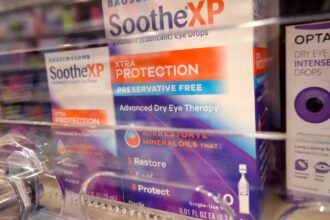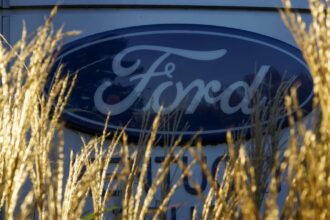Akero Therapeutics Inc. shares
AKRO,
fell more than 60% Tuesday after the company released an update on its lead product candidate, a treatment for nonalcoholic steatohepatitis, a form of fatty liver disease.
Only 22% to 24% of the patients with compensated cirrhosis due to NASH receiving the treatment, efruxifermin, had at least a one-stage improvement in liver fibrosis, the study’s primary endpoint, Akero said in a release. But roughly 60% of patients receiving the treatment had NASH resolution after 36 weeks, compared with 26% for placebo, “representing the highest response rates reported to date for NASH resolution in this patient population,” the company said.
Evercore ISI analysts on Tuesday cut their price target for Akero shares to $36, from $60 previously, saying, “investors were hoping this data would catapult the stock into cirrhosis and away from NASH,” which has suffered from the obesity-drug frenzy. Efruxifermin may be a cirrhosis drug, the analysts wrote, “but we need to wait a year to know for certain.”
“We set a high bar with the primary endpoint after only 36 weeks of treatment,” Dr. Andrew Cheng, Akero’s president and CEO, said in a statement. But looking at the overall data, including the fibrosis improvement trend and statistically significant rates of NASH resolution, Akero believes efruxifermin “has the potential to show additional improvements for patients after the long-term follow-up period is complete” at week 96, Cheng said.
Akero shares are down 11.4% in the year to date, while the S&P 500
SPX
has gained 12.9%.
The Akero study results also dragged down shares of 89bio Inc.
ETNB,
which is developing a similar liver-disease treatment, pegozafermin. 89bio is in the “same boat” as Akero, the Evercore ISI analysts wrote Tuesday, as the treatments have a similar mechanism of action. Shares of 89bio dropped 35% Tuesday and are down 21% in the year to date.
Leerink Partners analysts, who have an outperform rating on 89bio shares, saw promise in the Akero data, writing in a note Tuesday, “while the fibrosis benefit was not statistically significant at 36 weeks, we believe this represents one of the strongest efficacy datasets in this difficult-to-treat population to date.”
Read the full article here










